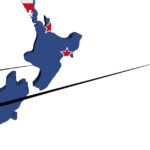Senior citizen Launches Federal Court Challenge Against India Travel Ban

A 73-year old Australian man has launched urgent Federal Court proceedings, challenging the Australian Government’s travel ban which would criminalise him for returning from India.
Gary Newman has been stranded in Bangalore since March 2020 when he visited friends, and is desperate to return home.
His lawyers intend to argue that the emergency biosecurity declaration made by Health Minister Greg Hunt – which makes it a crime for people who have been in India in the past 14 days to enter Australia – contravenes the Commonwealth Constitution.
Criminalising Aussies who want to come home
It is understood to be the first time that Australia has banned its own citizens from returning home, threatening criminal sanctions for those who do.
Debate has raged in recent days, with many expressing the view that the ban is an unjustifiable use of the emergency powers afforded to the government in a time of crisis.
Challenging the Health Minister
It is reported that Mr Newman’s lawyers will argue the Commonwealth is acting outside its powers, and secondly, that the minister’s declaration is in breach of an implied freedom to return home.
In Australia, while Australians can apply for a passport to ‘travel freely’ there is no codified right of return under Australian law, which sets us apart from many countries which have enacted a bill of rights, and specifically include this right.
The Health Minister made the declaration at the end of April, as India began to experience a surge in Covid cases. The country is struggling to contain the pandemic, recording around 350,000 infections on average daily. There have been more than 200,000 deaths.
Originally, the changes to the Biosecurity Act were described as a ‘travel pause’ which has been put in place until May 15 when it will be reviewed.
For this reason, Justice Stephen Burley has ordered that the challenge filed by Mr Newman’s lawyers be expedited. A formal hearing date is expected to be determined within the next 24 to 48 hours.
‘Racist’ travel ban
Indian Australians, as well as Australians living abroad and human rights advocates have been highly critical of the travel ban, with some claiming it is ‘racist’, particularly since no similar action was taken against the US or UK when Covid was rampant in those countries.
Many have also criticised the ban for being disproportionate to the threat potentially imposed by returning citizens who would be expected to quarantine upon arrival anyway.
Government ministers have rejected these accusations, arguing the decision to use the emergency powers was based on expert medical advice.
Defending the decision, Prime Minister Scott Morrison has admitted the likelihood of people being prosecuted for breaching the ban was “pretty much zero” and “very remote”. Now, facing a Federal Court challenge, the Government says it remains confident in the legal advice it has been given.
The Federal Court will now decide.
Protecting citizens
‘Citizenship’ describes the relationship a person has with their country.
A person gains citizenship by birth but can also be granted citizenship if they meet certain requirements.
In any country, citizens are granted certain rights and they are expected to obey the laws of their country, and to defend it if called upon to do so.
On the other hand, the government has a duty to act in the best interests of, and to protect its citizens.
Many believe that the India travel ban is a breach of the Federal Government’s duty and that instead of banning it’s citizens stranded overseas, it should be doing everything within its power to bring them home.
Around 9,000 Australians remain stranded in India, including 650 who are classified as ‘vulnerable.’
The Biosecurity Act 2015 (Cth)
The Biosecurity Act 2015 provides a mechanism for the federal health minister, currently Greg Hunt, to impose requirements and give directions during a ‘human biosecurity emergency period’.
What is a human biosecurity emergency?
Section 475(1) of the Biosecurity Act empowers the federal health minister to declare a human biosecurity emergency if satisfied that:
- A listed human disease is posing a severe and immediate threat, or is causing harm, to human health on a nationally significant scale, and
- The declaration is necessary to prevent or control:
- The entry of the disease into Australia, or
- The emergence, establishment or spread of the disease in Australia.
What is a listed human disease?
Section 42 of the Act provides that the director of human biosecurity may determine that a human disease is a listed human disease if the Director considers that the disease may be communicable and cause significant harm to human health.
Before making such a determination, the director must consult with the chief health officer for each state and territory.
COVID-19 is currently a listed human disease.
Who can declare a human biosecurity emergency?
Section 475(1) of the Act provides that the governor-general may declare the existence of a human biosecurity emergency if the health minister is satisfied of its existence.
What must a human biosecurity emergency declaration specify?
Section 475(3) requires that a human biosecurity emergency declaration specify:
- The listed human disease to which it relates,
- The nature of the emergency and conditions that gave rise to it, and
- The period during which it is in force.
How long does a human biosecurity emergency last?
Section 475(4) stipulates that a human biosecurity emergency declaration can last no longer than the health minister considers it necessary to prevent or control:
- The entry of the listed human disease into Australia, or
- The emergence, establishment or spread of the disease in Australia.
The period cannot, in any case, last for more than 3 months.
Can a human biosecurity emergency period be extended?
Yes. Section 476 of the Act empowers the governor-general to extend the biosecurity emergency period for a further 3 months if the health minister is satisfied that:
- The disease continues to pose a severe and immediate threat, or continues to cause harm, to human health on a nationally significant scale, and
- The extension is necessary to prevent or control:
- The entry of the disease into Australia, or
- The emergence, establishment or spread of the disease in Australia.
This can be done an unlimited number of times, provided the above assessment and determination is made before each proposed extension.
When can a human biosecurity emergency requirement be imposed?
Section 477(1) of the Act empowers the health minister to impose requirements during a biosecurity emergency period if satisfied that it is necessary to prevent or control:
- The entry of the declared listed human disease into Australia,
- The emergence, establishment or spread of the disease in Australia,
- The spread of the disease to another country.
The minister may also impose requirements in order to give effect to recommendations by the World Health Organisation.
What types of requirements can be imposed?
Section 477(3) of the Act empowers the health minister to impose requirements:
- That apply to persons, goods or conveyances when entering or leaving specified places,
- That restrict or prevent the movement of persons, goods or conveyances in or between specified places,
- For specified places to be evacuated, and
- For the purposes of giving effect to the above.
The above list is not exhaustive.
What must be considered before a requirement is imposed?
Section 477(4) requires the health minister to be satisfied of the following before imposing a requirement:
- That the requirement is likely to be effective in, or contribute to, achieving the purpose for which it is made,
- That it is appropriate and adapted to achieving its purpose,
- That it is no more restrictive or intrusive than required in the circumstances, and
- That the period of the requirement is no longer than necessary.
When can a human biosecurity emergency direction be given?
Section 478(1) of the Act empowers the health minister to give directions during a biosecurity emergency period if satisfied that it is necessary to prevent or control:
- The entry of the declared listed human disease into Australia,
- The emergence, establishment or spread of the disease in Australia,
- The spread of the disease to another country.
The minister may also make directions to give effect to recommendations by the World Health Organisation.
What types of directions can be given?
Section 478(2) of the Act empowers the health minister to make directions:
- To close or prevent access to premises,
- That are required to give effect to or enforce a requirement under section 177,
- In order to give effect to the above.
The above list is not exhaustive.
What must be considered before a direction is made?
Section 478(3) requires the health minister to be satisfied of the following before giving a direction:
- That the direction is likely to be effective in, or contribute to, achieving the purpose for which it is made,
- That it is appropriate and adapted to achieving its purpose,
- That it is no more restrictive or intrusive than required in the circumstances, and
- That the period of the direction is no longer than necessary.
Who exercises human biosecurity emergency powers?
Section 474 of the Act makes clear that the above powers can only be exercised by the health minister.
What happens if a person breaches a requirement or direction?
Section 479 of the Biosecurity Act 2015 (Cth) makes if a criminal offence punishable by up to 5 years in prison and/or a fine of 300 penalty units (or $63,000, as a Commonwealth penalty unit is currently $210) to contravene a direction made under section 477 or 478 of the Act.
When it comes to providing information, such as entries on a customs declaration or the like, section 532 of the Act prescribes a civil penalty of up to 60 penalty units (currently $12,600) for giving information in compliance or purported compliance with the Act while knowing the information is false or misleading or by omitting any matter or thing without which the information is misleading.
Section 533 of the Act imposes the same 60 penalty units maximum penalty for producing a document to another person in compliance or purported compliance with the Act while knowing that the document is false or misleading.








